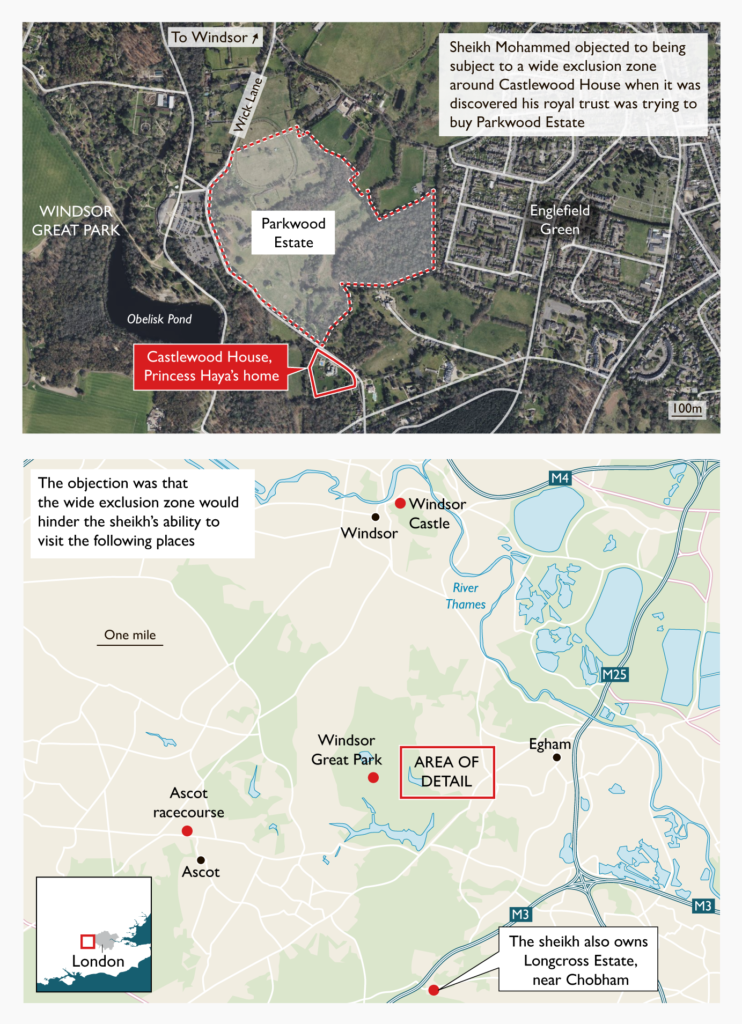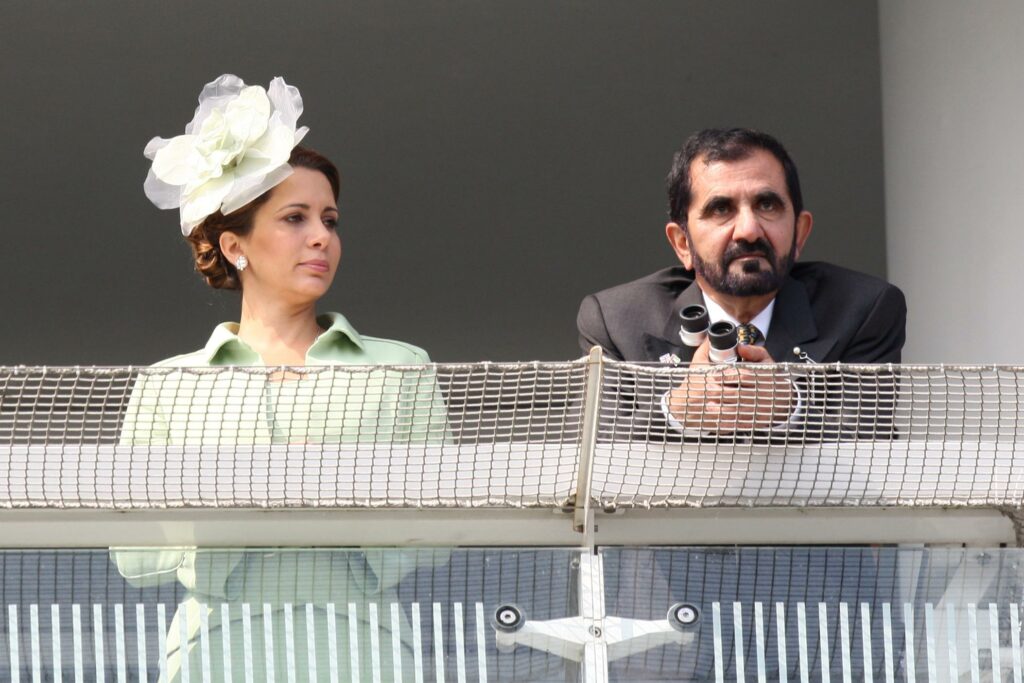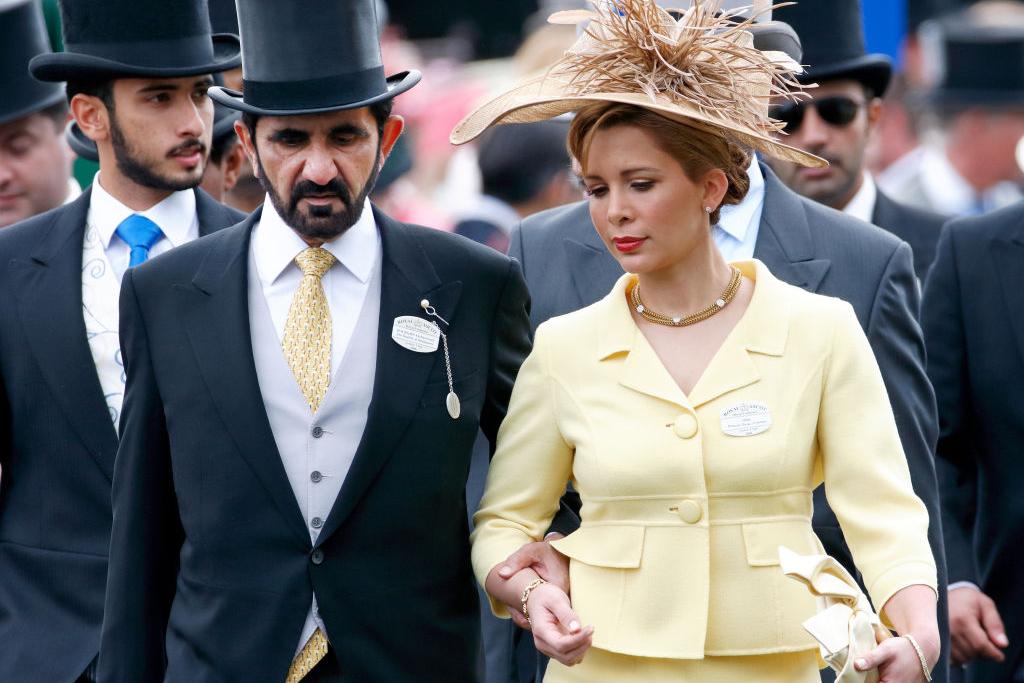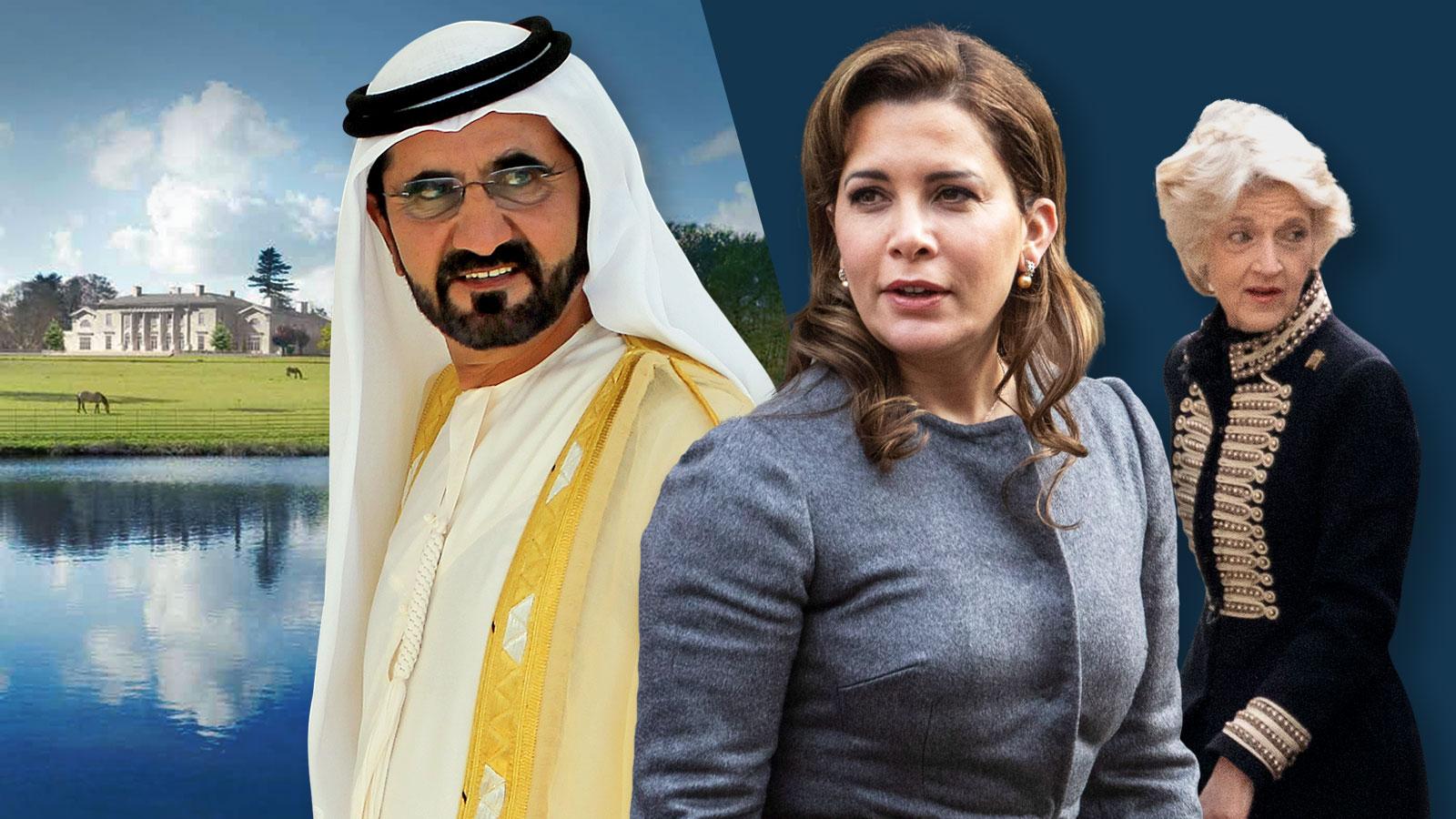Queen’s racing friend targeted ex-wife’s lawyer in bitter divorce battle
David Brown, Catherine Philp, The Times
October 6, 2021
The government was urged last night to review its diplomatic relationship with one of its closest Middle East allies after a judge implicated its ruler in the hacking of a Tory peer’s mobile phone.
Sheikh Mohammed bin Rashid al-Maktoum of Dubai, a member of the Queen’s racing circle, faces a renewed police investigation into the use of the Pegasus spyware program. Victims include his former wife, Princess Haya bint al-Hussein, 47, and her lawyer, Baroness Shackleton of Belgravia.
Scotland Yard, the National Crime Agency and Black Rod, who oversees administration of the House of Lords, have been informed of the hacking.
Sheikh Mohammed, 72, has also been found to have attempted to buy a stately home in Surrey to intimidate his former wife, who lived with their two young children in a neighbouring mansion. He denies the allegations and said the findings were based on incomplete information and were made in a manner unfair to him. The Labour MP Chris Bryant said: “The Foreign Office needs to do a proper inquiry into our relationship with Dubai.”
Authorities won’t take action over sheik, says lecturer
A British academic whose mobile phone was hacked after he was jailed in Dubai believes that he will be blocked from investigating a court ruling that its ruler was responsible for spying on a Conservative peer.
Matthew Hedges said he found out in July that he and his lawyer had had calls intercepted by the Pegasus spyware system after he had been jailed in 2018. In a judgment made public yesterday, Sir Andrew McFarlane, president of the family division of the High Court, concluded that Sheikh Mohammed bin Rashid al-Maktoum was responsible for the hacking of his former wife and her divorce lawyer’s phones. The Foreign Office said it would not comment on possible sanctions against the Dubai ruler, who has diplomatic immunity.
Hedges, from Durham, was jailed for life in the United Arab Emirates after being convicted of spying on behalf of the British government, but later received a pardon. He said he does not believe any new police investigation into the findings will proceed because of the Foreign Office’s record of refusing to co-operate in cases involving the sheikh.

“He’s going to be investigated. But the police won’t get the help and support from the Foreign Office,” Hedges said.
A 2001 investigation into the abduction of Mohammed’s daughter, Princess Shamsa, in Cambridge a year earlier was abandoned after police were barred from Dubai. Officers later blamed Foreign Office obstruction.
The hacking ruling came ten months after he found Mohammed had ordered the abduction of Shamsa and her sister, Princess Latifa, 35, taken from a yacht in the Indian Ocean in 2018.
The judge concluded in civil proceedings that there had been hacking of the phones of Mohammed’s former wife, the Jordanian princess Haya Bint al-Hussein, 47; her divorce lawyer Baroness Shackleton of Belgravia; fellow lawyer Nicholas Manners and attempts to hack phones of princess’s personal assistant and two of her security staff.

Shackleton, 65, is one of Britain’s leading divorce lawyers, with clients including the Prince of Wales.
McFarlane concluded: “It is more probable than not that the surveillance of the six phones that I have found was undertaken by Pegasus software was carried out by servants or agents of the father, the Emirate of Dubai or the UAE and that the surveillance occurred with the express or implied authority of the father [Mohammed].”
McFarlane said although Dubai could not be a Pegasus customer, the UAE, where Mohammed is prime minister, could have used the system. He said: “The court is entitled to assume that the father and those acting for him must have the ability to instruct the UAE security services to take action.”
The sheikh had asked the Supreme Court to block the investigation into the hacking claims, which was part of the costliest child custody battle in British legal history. He said the issue was a “foreign act of state” for which the courts did not have jurisdiction. He also said Iran, Israel, Saudi Arabia or Jordan could have been behind the hacking.

Haya told the court: “Since July 2020, the pressures on me have dramatically increased. I have felt my health and my strength deteriorate slowly and progressively under the strain of the harassment of me, both through the litigation and otherwise. I feel hunted all the time.”
The princess fled to London with her two children in 2019 after her husband became concerned about her close relationship with her British bodyguard.
Haya said she had been warned by her stepmother, Queen Noor, in February last year that Mohammed was attempting to buy property near her.
The princess had been assured by the sheikh’s lawyers, Harbottle & Lewis, that he would not buy property near her but months later discovered he was buying Parkwood, a £30 million stately home, next to her Surrey mansion.
Mohammed objected to a wide exclusion zone that his former wife was seeking around her home. He said it would make it difficult to visit Windsor Castle and Royal Ascot, where he is regularly seen with the Queen.

The sheikh admitted a trust that was buying properties for use by members of the ruling family and their staff was due to exchange contracts on Parkwood within weeks. He said in a statement: “I have always denied the allegations made against me and I continue to do so. These matters concern supposed operations of state security. As a head of government involved in private family proceedings, it was not appropriate for me to provide evidence on such sensitive matters either personally or via my advisers in a foreign court.”
The Foreign Office said: “It is vital everyone uses cyber capabilities in a way that is legal, responsible and proportionate to ensure cyberspace remains a safe place for everyone and we work closely with our allies to tackle cyberthreats and improve our overall global resilience to attacks.”
A recent visit to the UK by Mohammed bin Zayed, crown prince of Abu Dhabi, shows “the UK-UAE relationship is strong … and our work to tackle shared global challenges together, such as climate change and prosperity”, it added.

Queen ‘may stop accepting his horses’
The ruling will be greeted with dismay within Buckingham Palace: for years the Queen has had a friendly relationship with Sheikh Mohammed bin Rashid al-Maktoum, united by their love of racing, writes Valentine Low. He has ridden with the Queen in her carriage at Royal Ascot and been a regular in the royal enclosure. As the owner of the massive Godolphin horseracing operation, he has for years made gifts of thoroughbreds to the Queen.
Those gifts continued to be accepted as recently as late last year.
After last year’s damning British court judgment that Sheikh Mohammed had organised the abductions of two of his daughters it became clear that the relationship could not continue on the same level as before.
While the Queen was keen to avoid being dragged into the dispute, The Times revealed last year that she would make sure that she would not be placed in a situation where she was likely to be photographed with the sheikh or Princess Haya. But there is a huge difference between not being seen with him in public and shunning him entirely.
During this year’s flat racing season the 39 horses that have run in the Queen’s colours included four given to her by Godolphin. Those horses, which raced as two-year-olds, would have been given to the Queen no earlier than this time last year — several months after the ruling in March 2020.
The sheikh is believed to have given the Queen four yearlings a year since 2009. She also uses his stud services.
Robert Lacey, the royal author who is also an expert on the Arab world, said: “She will presumably have to reconsider her relationship with him. It puts a question mark over accepting any more horses from him.” But he added: “I have not seen the evidence that could translate the Queen’s shared interest with Sheikh Mohammed in racehorses into ‘friendship’ — certainly not close friendship. The Queen has always been careful to make clear that her acquaintance does not extend beyond racing.”
In March John Warren, the Queen’s racing manager, declined to comment.
Dubai is a key intelligence and defence partner of Britain’s in the Gulf. A racing source said previously that if the ruler were to feel slighted he could well “walk off in a huff”. Also, along with Saudi Arabia, the UAE is a lucrative destination for British-made weapons. Post-Brexit the Gulf has been a key market for trade as well as a lucrative source of foreign investment in Britain.
Buckingham Palace declined to comment.

Court finding will put racing establishment rules to the test
There was no more distinguished buyer at Tattersalls’ horse sales yesterday than Sheikh Mohammed bin Rashid al-Maktoum. He shook hands with Willie Carson, the former champion jockey, to purchase another horse for his Godolphin stables in Newmarket, writes David Brown.
Later a series of damning High Court judgments were made public in which the ruler of Dubai was linked to the use of phone-hacking spyware.
He is the leading power in British racing, bankrolling the sport for decades. The High Court finding that on the balance of probabilities he was complicit in the hacking will be a test of racing’s rules on owners’ integrity. The British Horseracing Authority’s rulebook requires that it is satisfied with owners’ “honesty and integrity”. Those whose “conduct, behaviour or character” fall below the standard may be refused registration. The criterion includes “whether the applicant has been the subject of any adverse finding by a judge in any civil proceedings”.
The authority was not able to discuss what happens next. In March, when the sheikh was accused of having imprisoned his daughter Princess Latifa, the authority called it a complex matter “involving an overseas state with strategic ties to the United Kingdom”.
Julie Harrington, its chief executive, said: “We have been in contact with the government to explain our responsibilities as regulator, and to highlight a significant contribution to the industry.”
